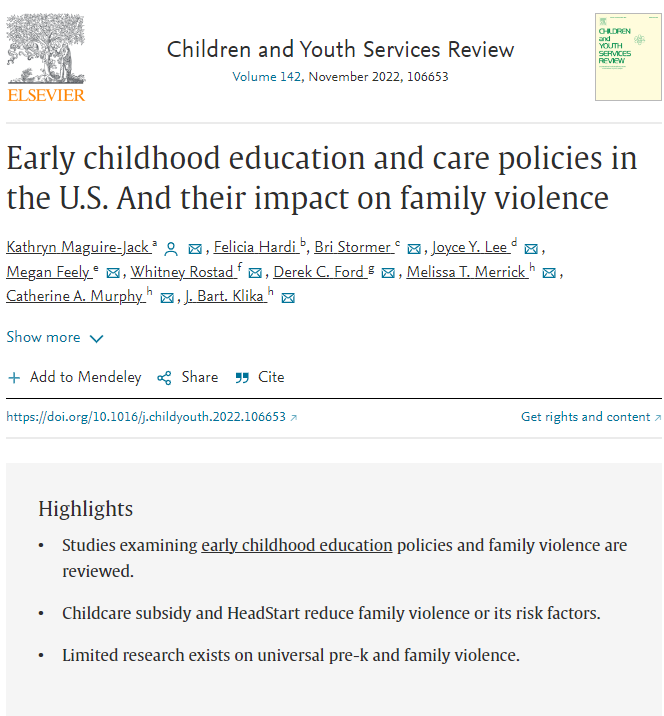A synthesis of peer-reviewed journal articles considers whether policies expanding early childhood care and education (ECCE) access might serve as family violence prevention strategies. Considering articles published from 1996 to 2021, the authors examine studies that link child care subsidy receipt, Head Start participation, and universal pre-kindergarten enrollment, to child maltreatment and partner violence outcomes. The authors also review literature that uses ECCE participation as a predictor of factors that in turn predict family violence, like parental employment and mental health. The review finds that the volume of work specifically linking ECCE participation to family violence measures is scant, but that the strongest causal evidence exists for Head Start, particularly as a method of changing parental disciplinary practices, like spanking. Child care subsidy literature more often focused on parental employment, rather than family violence, but with consistent links to improved work outcomes, the authors suggest that subsidies could mitigate risks for violence by improving family economic standing. No studies linking universal pre-kindergarten to outcomes of interest were identified. The authors conclude that while the theory shows some promise, because most causal evidence thus far is weak, more research using more robust study design is needed.

